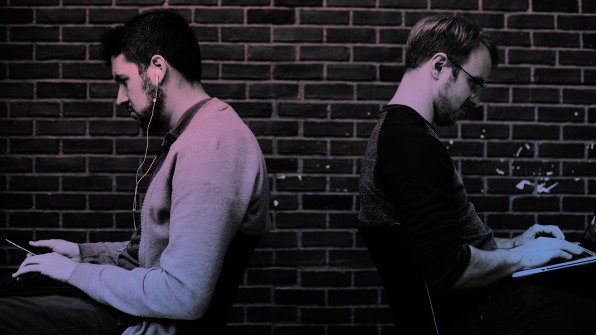Effect of technology on the new generation
We can't argue about part technology has played in our lives and the ease it has brought to us as we have experienced life without a mobile phone or an internet free enabled environment before we took on to the new life of a technological enabled environment however young children are born into this technological life and have no prior experience apart from the one they are born into.
I read an article in which Tony Fadell spoke about this fragile and peculiar topic which I would be sharing some points for debate or discussion and some extracts from his interview.
Just incase you don't know who Tony Fadell is
Tony Fadell is an adviser to Alphabet's Larry Page and the founder and former CEO of Nest, maker of the Nest Learning Thermostat and Nest Protect: Smoke + Carbon Monoxide alarm. Prior to Nest, Tony served as SVP of Apple’s iPod division and led the teams that created the first 18 generations of the iPod and the first three generations of the iPhone. Before joining Apple, Tony was a cofounder, CTO, and director of engineering of the Mobile Computing group at Philips Electronics. He architected the award-winning Velo and Nino PDAs, based on the Windows CE Palm PC platform, and later became vice president of business development for Philips U.S. Strategy and Ventures, managing its digital music strategy and investments. Earlier in his career, Tony was a hardware and software architect at General Magic working with Sony, Philips, Matsushita, Toshiba, and other consumer electronics firms to develop a line of personal handheld communicators. He has authored more than 300 patents.
- Does technology do more harm than good to the new generation? We have seen the decrease in physical interaction and increase in abstract interactions, physical interactions is now accepted to be a skill which was a way of life before now but this new generation are known to be "smarter"
Fadell was speaking as part of the Design Museum’s program around its current blockbuster exhibition, California, which examines the history and culture of digital technology in the Golden State, from early iPhone prototypes to the utopian festival and tech industry networking staple Burning Man to drawings of Apple Park. The conversation, called “Selling Freedom,” brought together Fadell; Bethany Koby, the cofounder and CEO of toy company Technology Will Save Us; David Edgerton, a historian of science and technology at King’s College London; and Judy Wajcman, a sociologist at the London School of Economics who studies the social impact of technology. They were charged with examining the consequences of having so much revolutionary technology coming from a single place.

He went ahead to tell us the way he feels sometimes
“I wake up in cold sweats every so often thinking, what did we bring to the world?” he says. “Did we really bring a nuclear bomb with information that can–like we see with fake news–blow up people’s brains and reprogram them? Or did we bring light to people who never had information, who can now be empowered?”
- Technology now seems like the only way to ground a kid when they do something wrong
“And I know when I take [technology] away from my kids what happens,” Fadell says. “They literally feel like you’re tearing a piece of their person away from them—they get emotional about it, very emotional. They go through withdrawal for two to three days.”
- He explained and hope that there could be a difference in the way technology is created and pushed out for consumption, I personally see some nice points
“A lot of the designers and coders who were in their 20s when we were creating these things didn’t have kids. Now they have kids,” he says. “And they see what’s going on, and they say, ‘Wait a second.’ And they start to rethink their design decisions.”
How are these designers rethinking their choices now that they do have families? One example is many tech companies’ stalwart position that they act as platforms and are not responsible for the content that users post–a stance that has recently come under fire as Facebook’s algorithms enabled fake news about the election to spread faster than real news. Fadell points to Google, which owns YouTube, in particular: “It was like, [let] any kind of content happen on YouTube. Then a lot of the executives started having kids, [and saying], maybe this isn’t such a good idea. They have YouTube Kids now.” (Google bought Nest, the company Fadell started after leaving Apple, in 2014 for $3.2 billion, and Fadell left the company under less than favorable circumstances last year.)
“This self-absorbing culture is starting to blow,” he says. “Parents didn’t know what to do. They didn’t know this was a thing they needed to teach because we didn’t know for ourselves. We all kind of got absorbed in it.”
According to Fadell, this is largely a matter of unintended consequences–but that doesn’t free designers and developers from responsibility. Fadell wants there to be a Hippocratic oath for designers, where they pledge to work ethically and “do no harm.” “I think we have to be very cognizant of the unintended consequences, but also acknowledge them and then design them out–make sure that we are ethically designing,” he says. “This is the slowest technology will ever progress ever again in your life. It’s only speeding up. So what are we going to do as designers to bring that element in all the time?”
What are your thoughts? and what do you think can be done? Share below.
Hi! I am a robot. I just upvoted you! I found similar content that readers might be interested in:
https://www.fastcodesign.com/90132364/nest-founder-i-wake-up-in-cold-sweats-thinking-what-did-we-bring-to-the-world